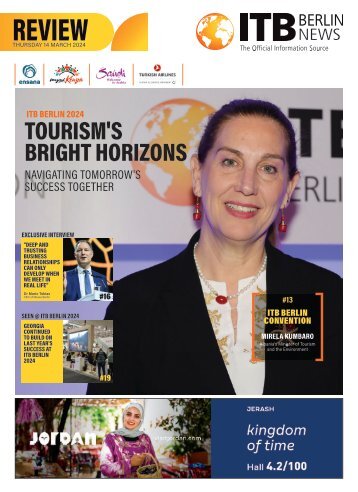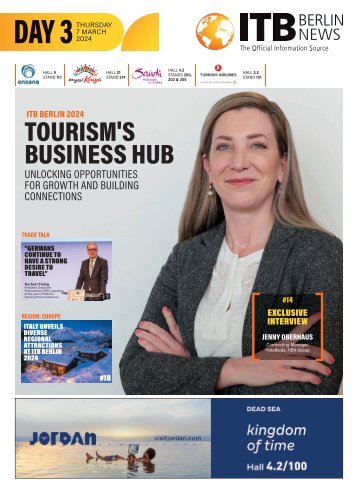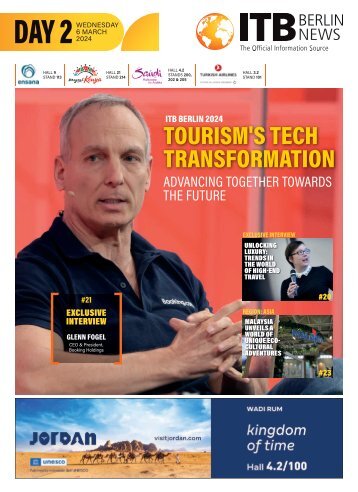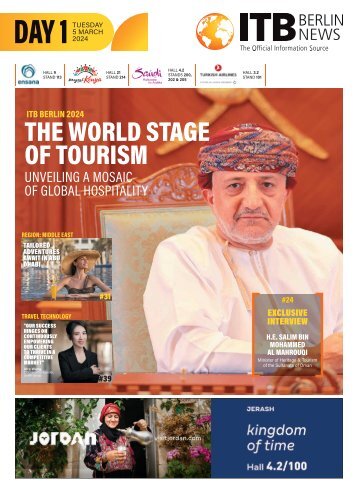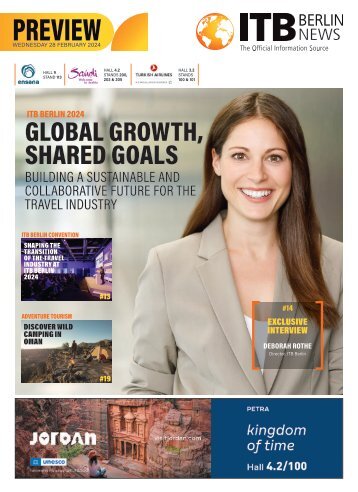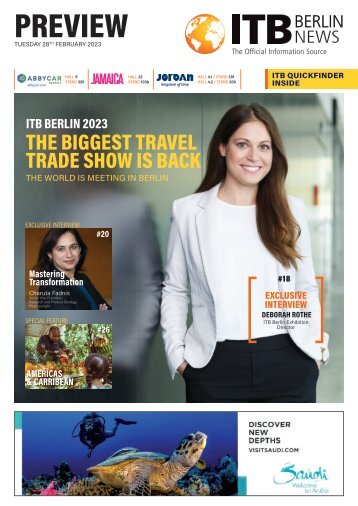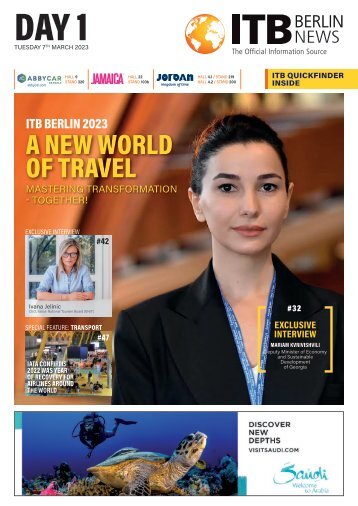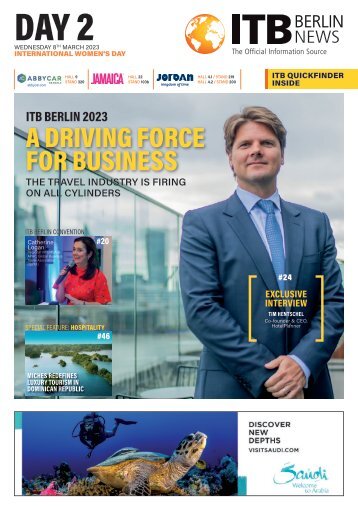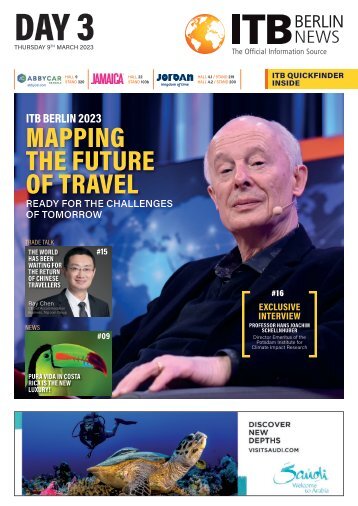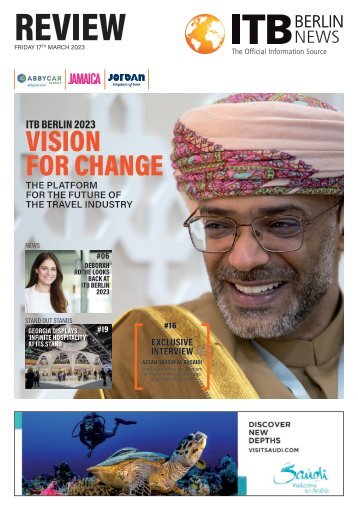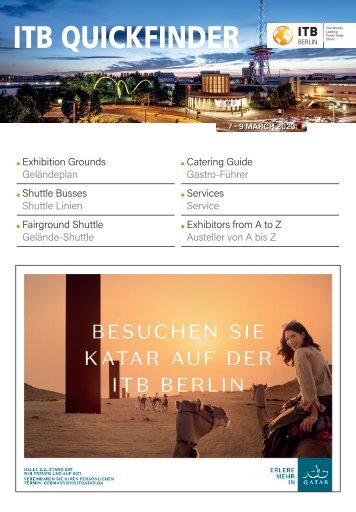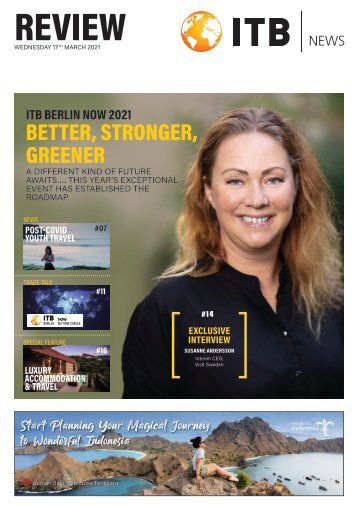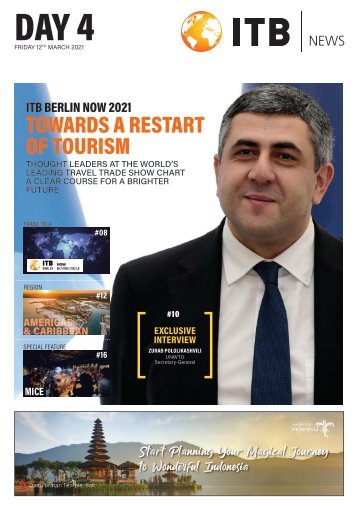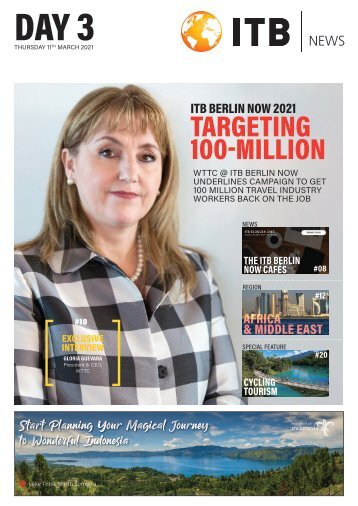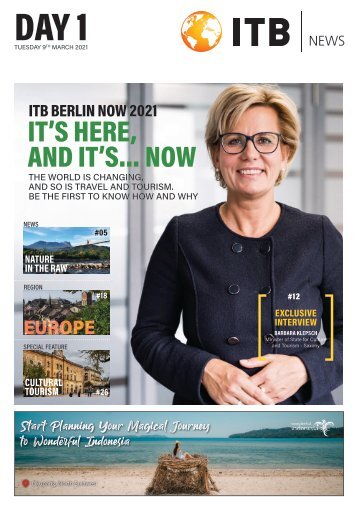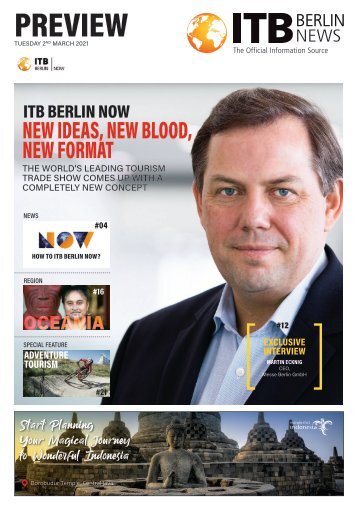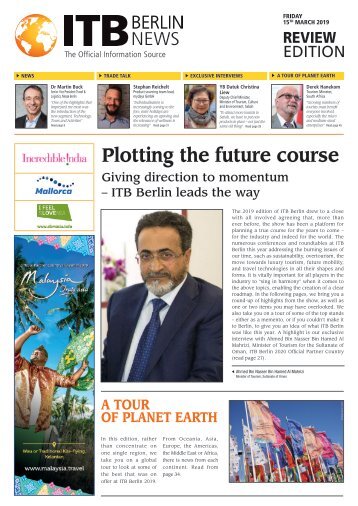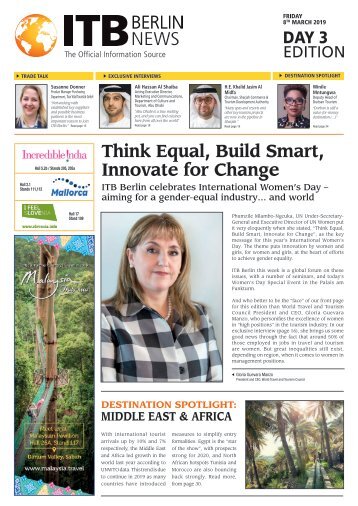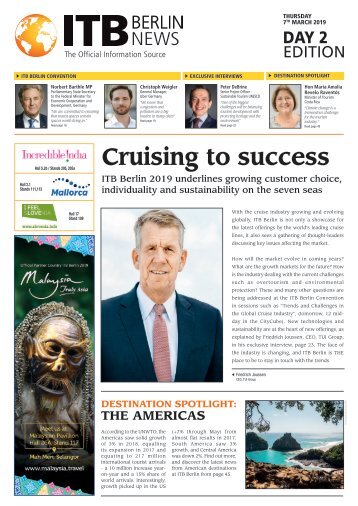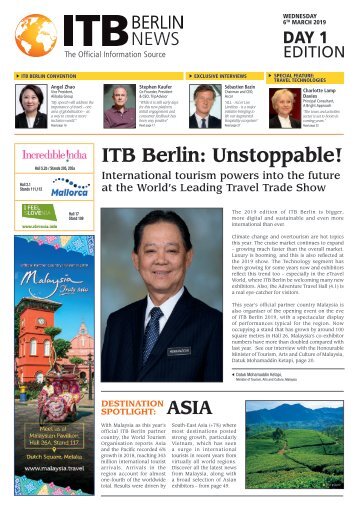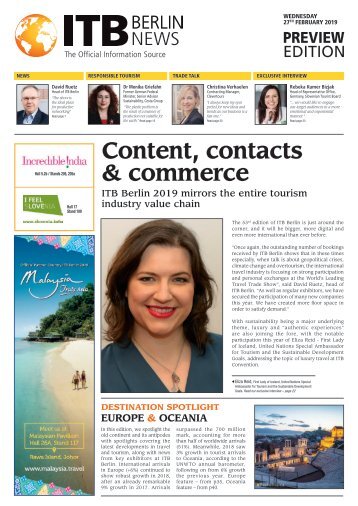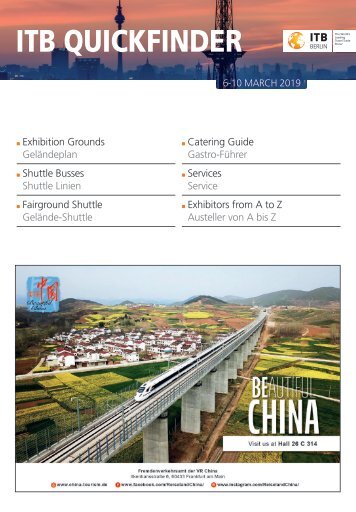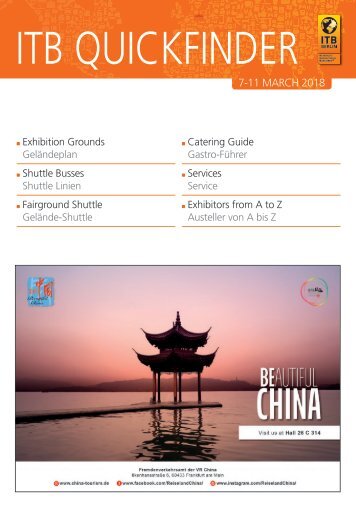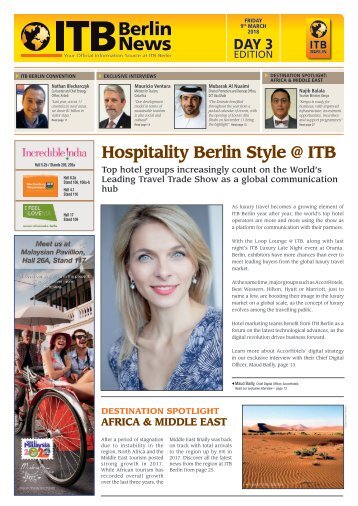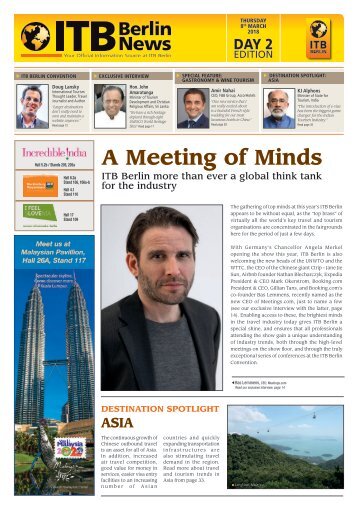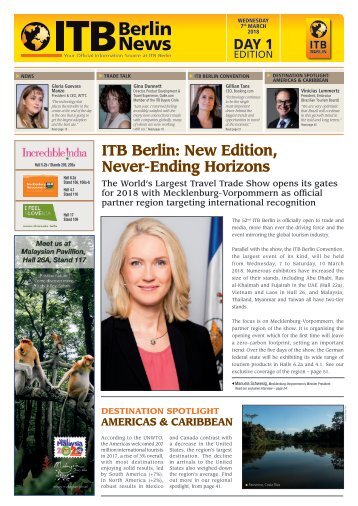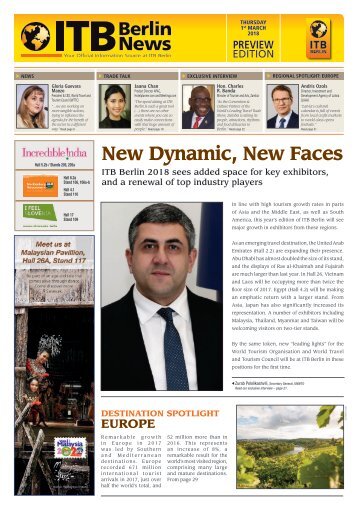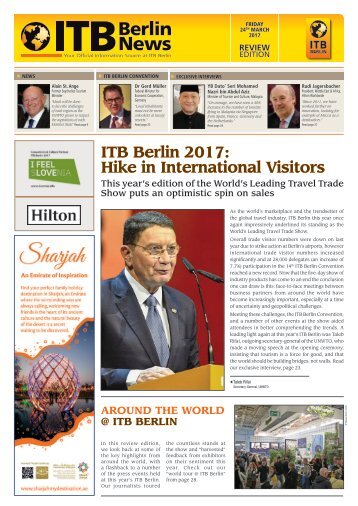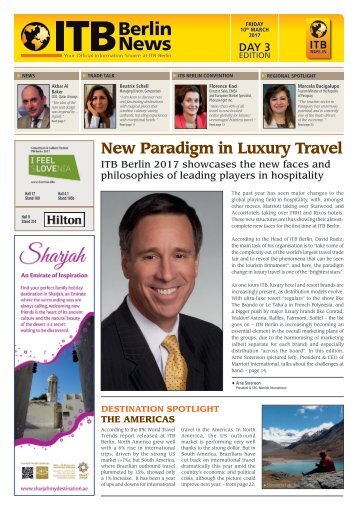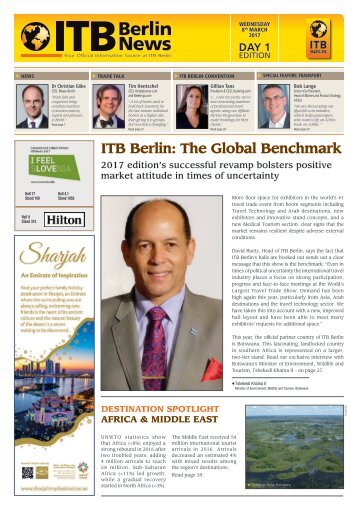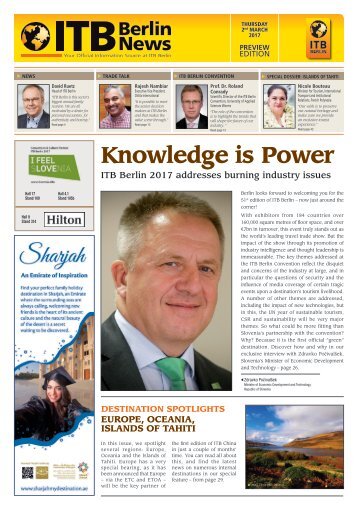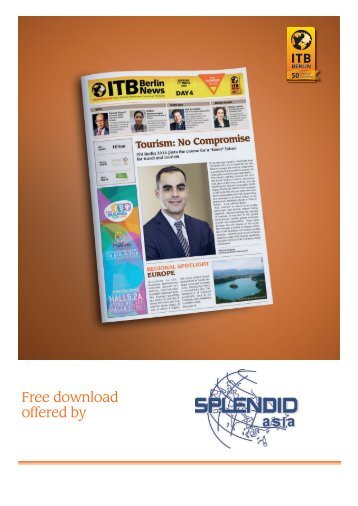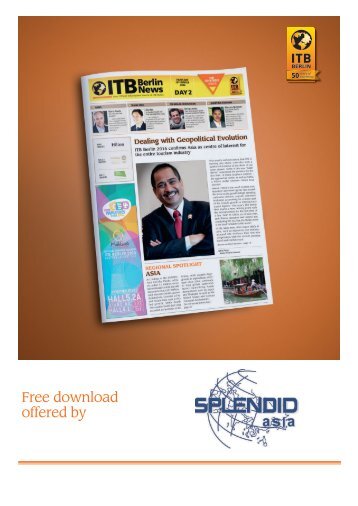
ITB Berlin News Preview Edition
30 REGION EUROPE Europe
30 REGION EUROPE Europe Outbound European traveller trends amid economic uncertainty It’s a marketplace of mixed signals and lingering economic uncertainty. More French, German and UK travellers are exploring, but they are not necessarily spending more amid shifts in where they go and what they buy. Travellers are cutting back where they can, meaning fewer trips and packaged holidays. However, they are holding out for long, international excursions to new places. TRAVELLER POPULATION In France, the threat of terrorism and high unemployment have created a changing travel landscape: The traveller pool is growing but with more cost-conscious travellers. Germans remain confident due to an expanding economy, strong GDP growth and low unemployment, leading to a stable and strong travel environment. Brexit, rising inflation and an already wavering economy has caused Britons to cut back on leisure travel, casting a shadow on the near-term outlook for travel and tourism in the UK TRAVELING LESS, BUT LONGER More of the population is traveling, but fewer trips. France’s travel population is climbing, however seven in 10 travellers now just take one to two trips per year. The UK has the most travellers taking more than three trips annually, but that has dropped 11 points in two years. French travellers may be cutting back on the number of trips annually, but they are holding out for bigger and longer excursions. The percentage of quick getaways fell 14 points since 2014. The same is true for British travellers; the number of trips lasting two weeks or longer is increasing. CUTTING BACK ON TRANSPORTATION COSTS With travellers spending less on leisure trips, air and rail transportation took a hit in France, Germany and the UK Less air and rail means more drive trips. In France, which had the biggest jump in budget travellers, nearly two thirds of travellers who didn’t book airfare ended up driving to their last destination. Intentions for transportation purchases in the coming year remain modest. Intentions for car travel is decreasing in France, where one in five travellers plan to travel more by rail. On the other hand, Germany is likely to continue seeing more leisure trips close to home, as travellers have much stronger intentions for increasing road travel than air or rail trips. LODGING PREFERENCES VARY Lodging consumption is rising in France and the UK to the highest levels in years, but accommodation preferences are changing among all travellers. Over a third of French travellers stayed at midscale hotels. However, all lodging categories dropped within the past year, and staying with friends and family remains a top choice for travellers on a budget. UK travellers shifted away from staying with family and friends and contributed to more resources to paid lodging – good news for threeand four-star hotels. German travellers prefer a variety of lodging types. While most categories decreased, midscale resorts and B&Bs received a nice boost in 2016. But the rise of rentals, combined with the declining euro and a still shaky regional economy, may now increasingly impact traditional lodging options. In France and Germany, hotel use has mostly slipped as more travellers use private accommodation. Learn more about European consumer travel trends at Phocuswright’s Fast Track at ITB Berlin on Thursday, 9 March 2017 (11:00 – 12:00, Hall 6.1, eTravel Stage). The briskly paced program addresses Europe’s payments landscape, consumer travel trends and more. Phocuswright’s European Consumer Travel Report Sixth Edition (www.phocuswright.com) provides a detailed analysis of European traveller behaviours and purchase trends to help travel companies gauge how macroeconomic conditions are impacting the European travel industry. The report lends insight into online/offline channels and features used during destination selection, travel shopping and purchasing, and measures the growing impact of mobile devices ITB BERLIN NEWS • Thursday 2 nd March 2017 www.itb-berlin-news.com
EUROPE REGION 31 European Family Trips On The Rise Facts and figures from IPK’s World Travel Monitor Despite declining birth rates, family trips are on the rise. Over the past ten years, the annual average growth rate of holiday trips with children (aged under 15) has been around 2%, which corresponds to the growth rate for all holiday trips undertaken by Europeans. For family trips, Europe is the preferred destination as 90% spend their holidays there. The most popular destination for families is Spain, where around 15% spent their holidays, followed by France. In recent years, Germany has registered high growth in this segment. While in 2007 it was ranked sixth behind Spain, France, Italy, Austria and Turkey, Germany is ranked third and the number of family tourists to the country has almost doubled. Outside Europe, the most popular destinations for European families travelling abroad are the USA, followed by Egypt, Morocco, Tunisia and Thailand. The three source markets with the highest demand for family trips are Germany, the UK and France, which altogether account for more than one-third of European family trips. OFF TO THE BEACH Beach holidays are the most popular type of family holidays, with two in five spent on lakes or by the sea. The main motivation for families is to relax, while sunbathing and swimming as well as good food and drinks are also very important. Although having been on the rise in recent years, with 17 percent, city breaks follow beach holidays by far in popularity. The focus here is on sightseeing and experiencing a city’s atmosphere. With 15 percent, round trips are the third most popular type of family holidays. HOTELS INCREASINGLY IN DEMAND More than 50% of families choose to stay in hotels. Over the past ten years, this market has experienced steady growth, with about 25% of overnights spent in 4-star hotels. Besides hotels, the second most important type of accommodation are rented holiday homes and apartments which are more popular among family holidays than in the overall holiday market, while in contrast, the market for private accommodation has declined. TRAVEL INFORMATION AND BOOKING IS MAINLY ONLINE DRIVEN In order to plan their holidays, families obtain most of their online, yet approximately onethird also consults travel agencies and a quarter gets tips and information from friends and relatives. Also in regards to bookings, the internet has become the most important channel and has gained a strong market share in recent years. Almost threequarters of all European outbound family trips were booked online, while travel agencies came a distant second. Around a quarter of family holidays were booked via this channel. Source: IPK International - World Travel Monitor ® , a unique database for international tourism demand, based on 500,000 interviews worldwide. For further information, please contact info@ipkinternational.com or visit www.ipkinternational.com © iStock-Goodluz ITB BERLIN NEWS • Thursday 2 nd March 2017
- Page 1: THURSDAY 2 nd MARCH 2017 PREVIEW ED
- Page 4 and 5: 4 NEWS Personal Encounters, Authent
- Page 6 and 7: 6 NEWS ITB Berlin 2016 - South Entr
- Page 8 and 9: 8 NEWS Responsible Tourism: Meet th
- Page 11 and 12: TRADE TALK 11 The Ultimate Buyers
- Page 13: TRADE TALK 13 Rajesh Nambiar Execut
- Page 16 and 17: 16 ITB BERLIN CONVENTION ITB BERLIN
- Page 18 and 19: 18 ITB BERLIN CONVENTION Jens Thrae
- Page 20 and 21: 20 ITB BERLIN CONVENTION Percy von
- Page 22 and 23: 22 ITB BERLIN CONVENTION Caroline B
- Page 24 and 25: 24 EXCLUSIVE INTERVIEW Jean-Claude
- Page 26 and 27: 26 EXCLUSIVE INTERVIEW Slovenia - I
- Page 28 and 29: 28 SPECIAL FEATURE CAREERS ITB Care
- Page 32 and 33: 32 REGION EUROPE With a growing Chi
- Page 34 and 35: 34 REGION EUROPE 3 German Travel Ma
- Page 36 and 37: 36 REGION EUROPE ADVERTORIAL Georgi
- Page 38 and 39: 38 REGION OCEANIA Double Digit Grow
- Page 40 and 41: 40 REGION OCEANIA © Jeremy Weate W
- Page 42 and 43: 42 SPECIAL DOSSIER: ISLANDS OF TAHI
- Page 45 and 46: Hall 5.2a / Stand 105
- Page 47: SPECIAL DOSSIER: ISLANDS OF TAHITI
- Page 50 and 51: 50 SPECIAL DOSSIER: ISLANDS OF TAHI
- Page 52 and 53: 52 SPECIAL DOSSIER: ISLANDS OF TAHI
- Page 54 and 55: 54 SPOTLIGHT ON GERMAN REGION: BAVA
- Page 56 and 57: 56 SPOTLIGHT ON GERMAN REGION: BAVA
- Page 58: 58 Restaurants SPINDLER & KLATT Des
Inappropriate
Loading...
Mail this publication
Loading...
Embed
Loading...
